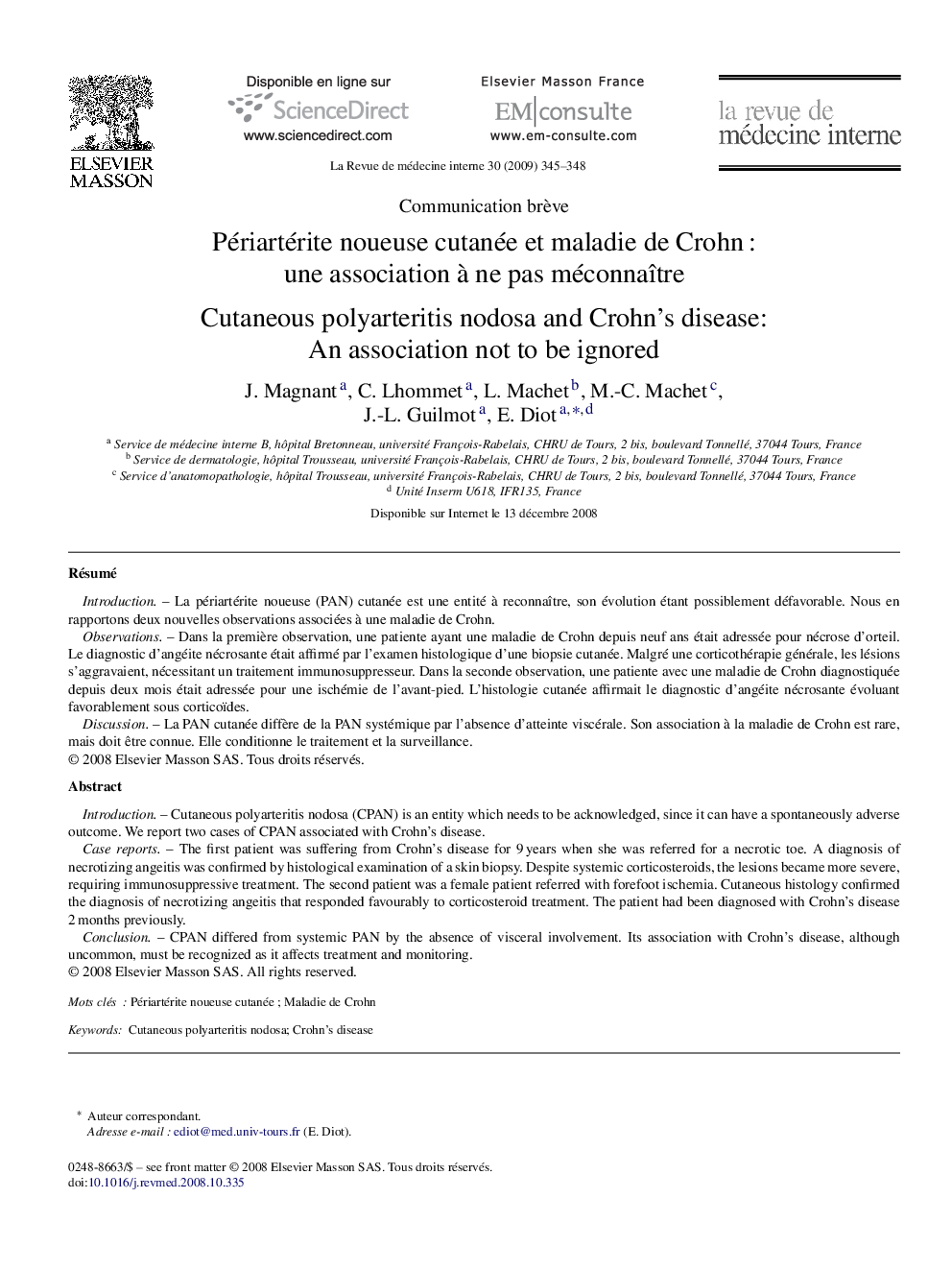| کد مقاله | کد نشریه | سال انتشار | مقاله انگلیسی | نسخه تمام متن |
|---|---|---|---|---|
| 3023743 | 1182475 | 2009 | 4 صفحه PDF | دانلود رایگان |

RésuméIntroductionLa périartérite noueuse (PAN) cutanée est une entité à reconnaître, son évolution étant possiblement défavorable. Nous en rapportons deux nouvelles observations associées à une maladie de Crohn.ObservationsDans la première observation, une patiente ayant une maladie de Crohn depuis neuf ans était adressée pour nécrose d’orteil. Le diagnostic d’angéite nécrosante était affirmé par l’examen histologique d’une biopsie cutanée. Malgré une corticothérapie générale, les lésions s’aggravaient, nécessitant un traitement immunosuppresseur. Dans la seconde observation, une patiente avec une maladie de Crohn diagnostiquée depuis deux mois était adressée pour une ischémie de l’avant-pied. L’histologie cutanée affirmait le diagnostic d’angéite nécrosante évoluant favorablement sous corticoïdes.DiscussionLa PAN cutanée diffère de la PAN systémique par l’absence d’atteinte viscérale. Son association à la maladie de Crohn est rare, mais doit être connue. Elle conditionne le traitement et la surveillance.
IntroductionCutaneous polyarteritis nodosa (CPAN) is an entity which needs to be acknowledged, since it can have a spontaneously adverse outcome. We report two cases of CPAN associated with Crohn's disease.Case reportsThe first patient was suffering from Crohn's disease for 9 years when she was referred for a necrotic toe. A diagnosis of necrotizing angeitis was confirmed by histological examination of a skin biopsy. Despite systemic corticosteroids, the lesions became more severe, requiring immunosuppressive treatment. The second patient was a female patient referred with forefoot ischemia. Cutaneous histology confirmed the diagnosis of necrotizing angeitis that responded favourably to corticosteroid treatment. The patient had been diagnosed with Crohn's disease 2 months previously.ConclusionCPAN differed from systemic PAN by the absence of visceral involvement. Its association with Crohn's disease, although uncommon, must be recognized as it affects treatment and monitoring.
Journal: La Revue de Médecine Interne - Volume 30, Issue 4, April 2009, Pages 345–348